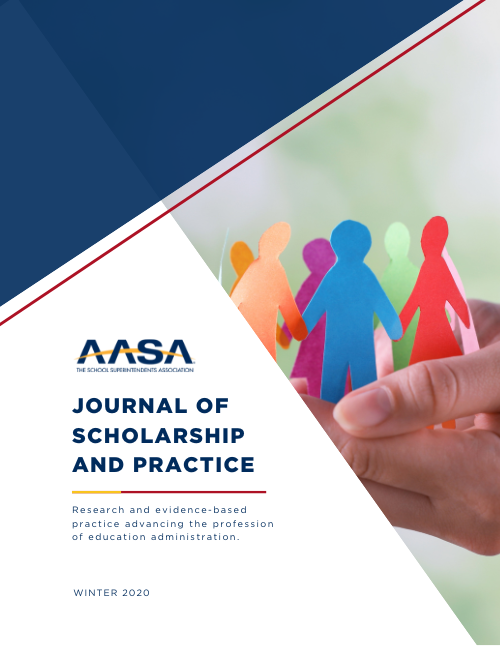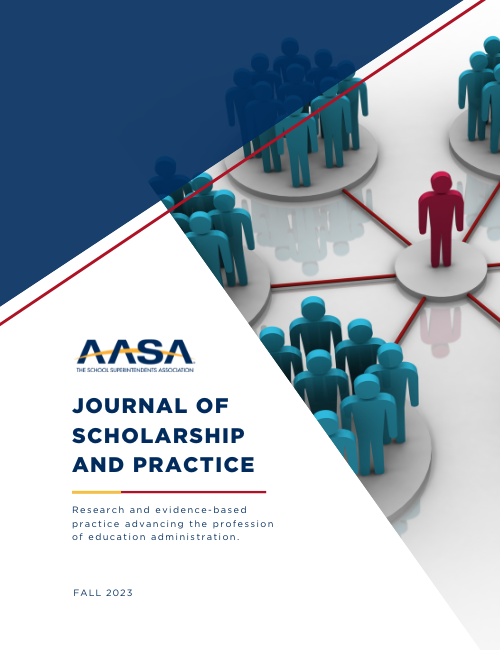2019 Fall Journal of Scholarship and Practice

This issue explores the complexity and challenges, stressors and politics, and skills and moral courage required to advocate for all children in our nation’s schools.
James Harvey, the executive director of the National Superintendents Roundtable, in “Leading Amidst Criticism: Inoculate, Reframe, and Communicate,” sets the table for the reader. Providing an overview of the misplaced blame on schools for failed social and economic policies, he calls on superintendents to take a stronger advocacy position in defending the well-documented excellence of public schools while being sufficiently informed to counter false narratives.
His plea mirrors the ISSLC standard that calls for “an educational leader who promotes the success of all students by understanding, responding to, and influencing the larger political, social, economic, legal, and cultural context.
Such labor is complex and demanding, so our three superintendent-researchers present suggestions from studies that examine the politics, job satisfaction, and stressors of the position. Teri Melton of Georgia Southern University, along with LaTanya Reeves, Julianne McBrayer, and Alexis Smith, explore the skills required to navigate the politics of the superintendency while John Bell, a Pennsylvania superintendent, measures job satisfaction in an era of reduced resources and increased accountability. Finally, former superintendents Joseph Lefdal of Schulyer Community Schools in Nebraska and David De Jong of the University of South Dakota look at the causes of superintendent stress and prescriptions for mitigating it.
The issue concludes with an opinion piece by AASA Executive Director, Dan Domenech, that was originally published in The Hill. Dan explains how a U.S. Department of Homeland Security regulation will change the definition of who is considered a “public charge” for immigration purposes. He shares that AASA had advocated against this regulation.
In his editorial, Ken Mitchell, editor of the AASA Journal of Scholarship and Practice reminds us that in the midst of today’s complexity, challenges, stressors, and politics—local and beyond—skillful superintendents continue to influence the mission to provide our nation with prepared, ethical, and informed citizens. The work of the superintendent is undergirded by moral purpose. It comes with a recognition that the responsibilities must go well beyond ensuring that schools are built, test scores climb, and buses run on time. It is a transformative mission that requires skill, courage, and an understanding of the complexities and inequities that transcend multiple sectors and disciplines within and beyond our organizations. Possessing such purpose and knowledge, every superintendent has the privilege of serving as an advocate for those without such a platform and voice.
Advertisement
Advertisement
Advertisement



